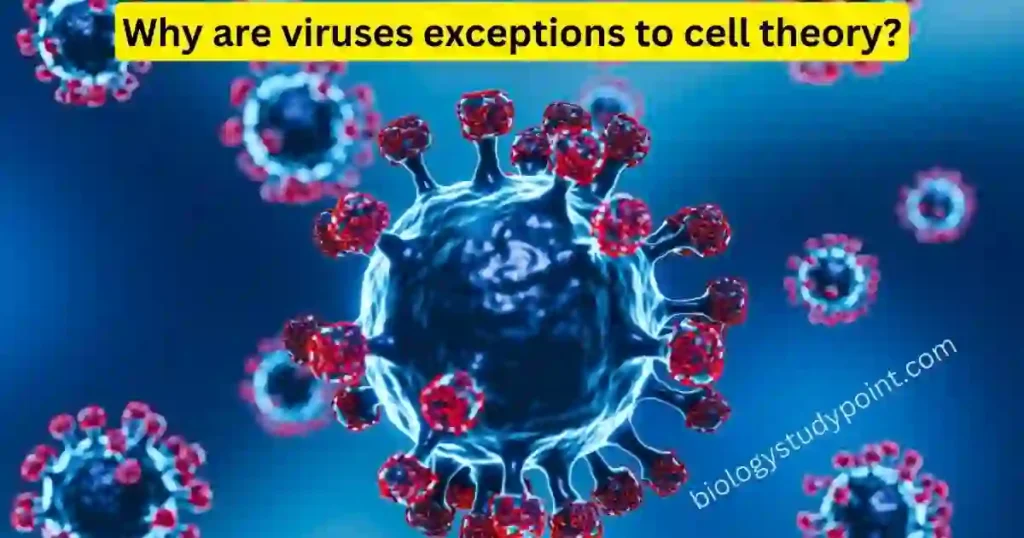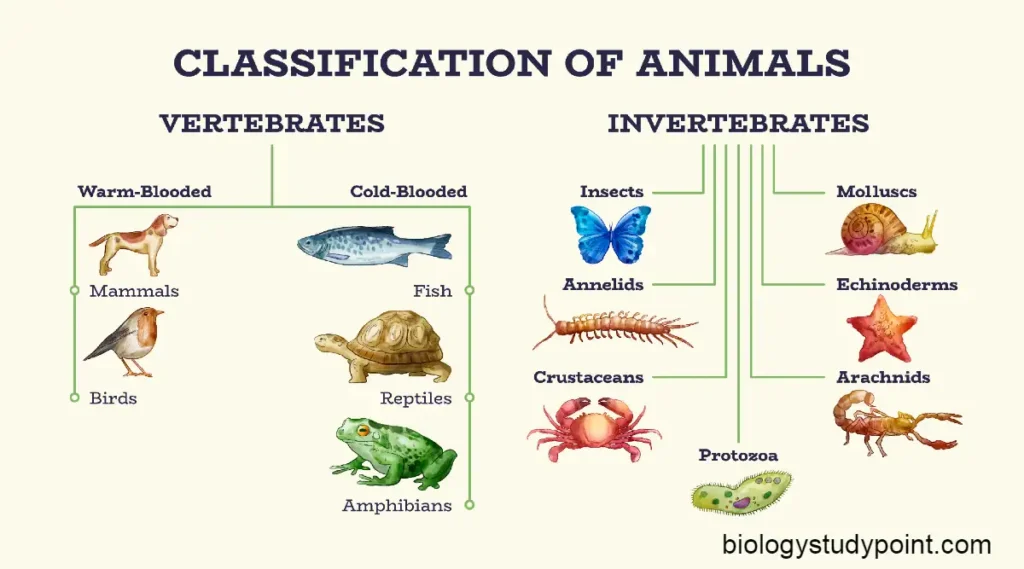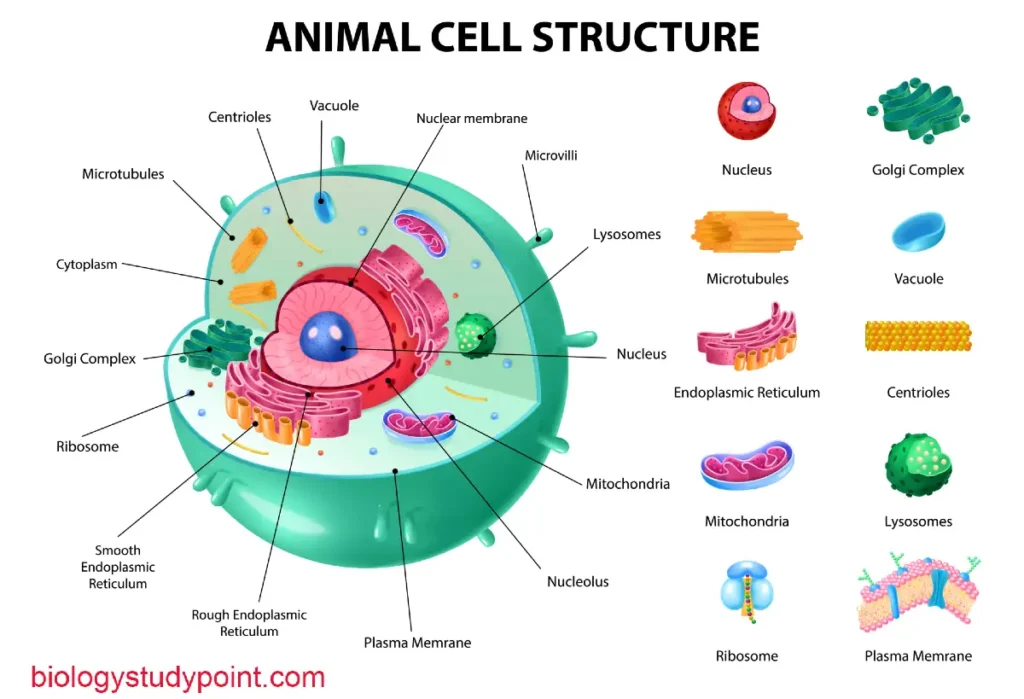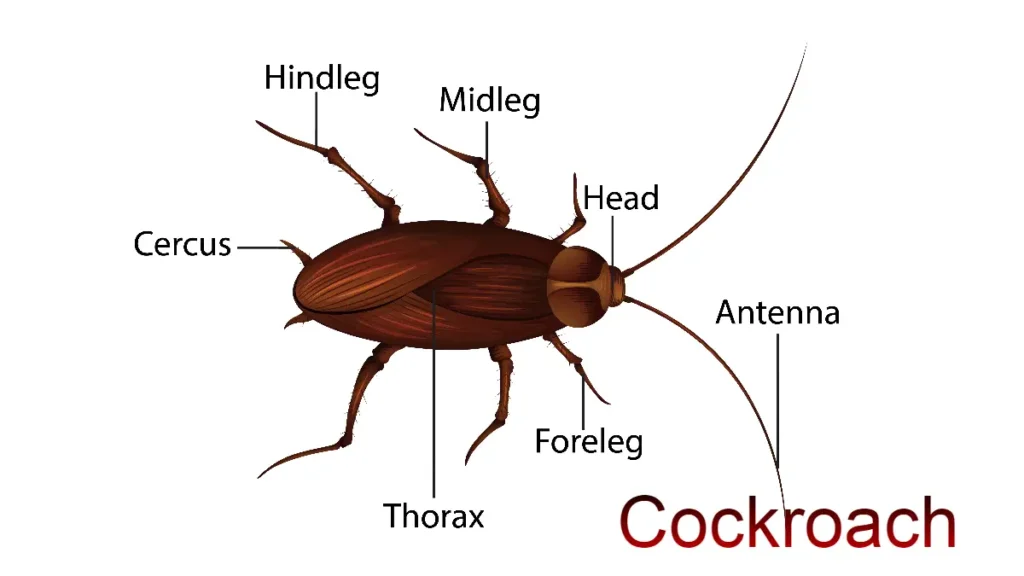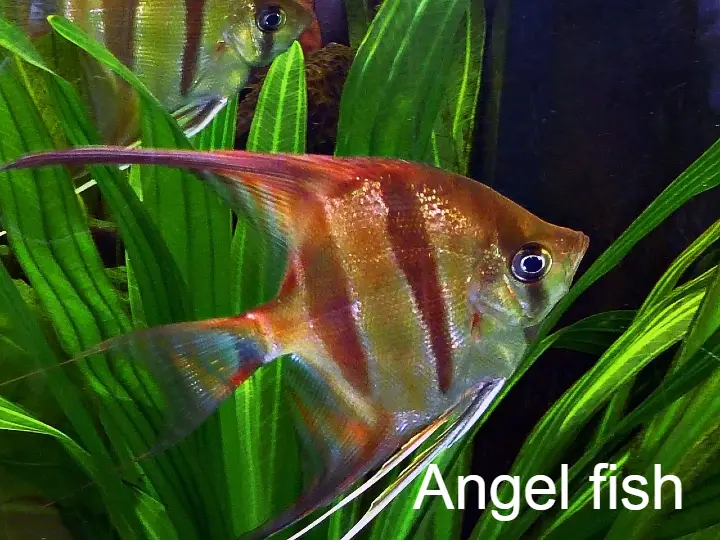Do you want to know Why are viruses exceptions to cell theory? If yes, then this article is just for you. Let us begin without wasting any time.
Why are viruses exceptions to cell theory?
The cell theory is one of the fundamental generalizations of biology and has universal application except for acellular protozoa, the microbes bacteria, and green algae in which the nuclear material does not form a distinct nucleus, especially the viruses which are not complete cells.
A virus has a central core of nucleic acid (DNA or RNA) enclosed in a protein covering. These do not have their enzyme system and depend on the enzyme system of the host cell for their metabolic activities. For this reason, viruses can multiply only inside the living cells and are called obligatory parasites.
During infection, only the nucleic acid of the virus enters the host cell and takes the commands of the synthetic machinery of the host cell. The host cell starts synthesizing viral nucleic acid and proteins forming New viral molecules.
Viruses can be crystallized just like other inorganic and organic compounds. Therefore the living nature of viruses is summarised below.
- Viruses have macromolecular organization.
- They can multiply (through the inside living system).
- They can undergo mutations.
- They have properties of recombination and heritability.
Why RBC are exceptions to cell theory?
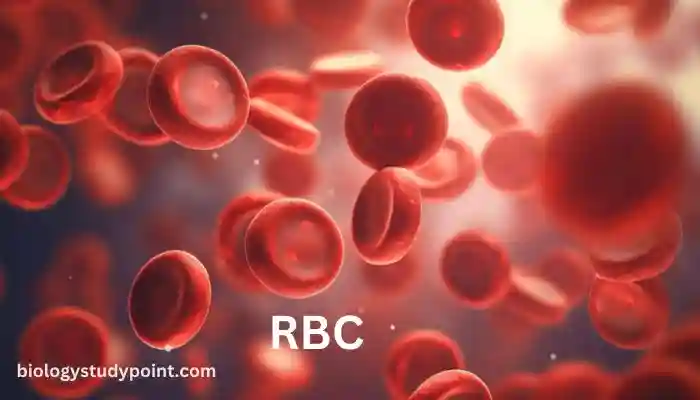
Friends, RBC is considered an exception to the cell theory because other organelles like the nucleus, endoplasmic reticulum, and mitochondria are not found in RBC. This does not follow the basic tenet of the cell theory, which states that all organisms are composed of one or more cells, and cells are the basic unit of structure and function in living organisms. RBCs are not true in this sense. The main function of RBCs is to transport oxygen. It is believed that due to the absence of a nucleus in RBCs, more space is left to transport oxygen molecules.
Conclusion
So friends, in today’s article we studied Why viruses are exceptions to cell theory. Friends, if you like this article, then please comment, share, and tell us your suggestions and our mistakes.
